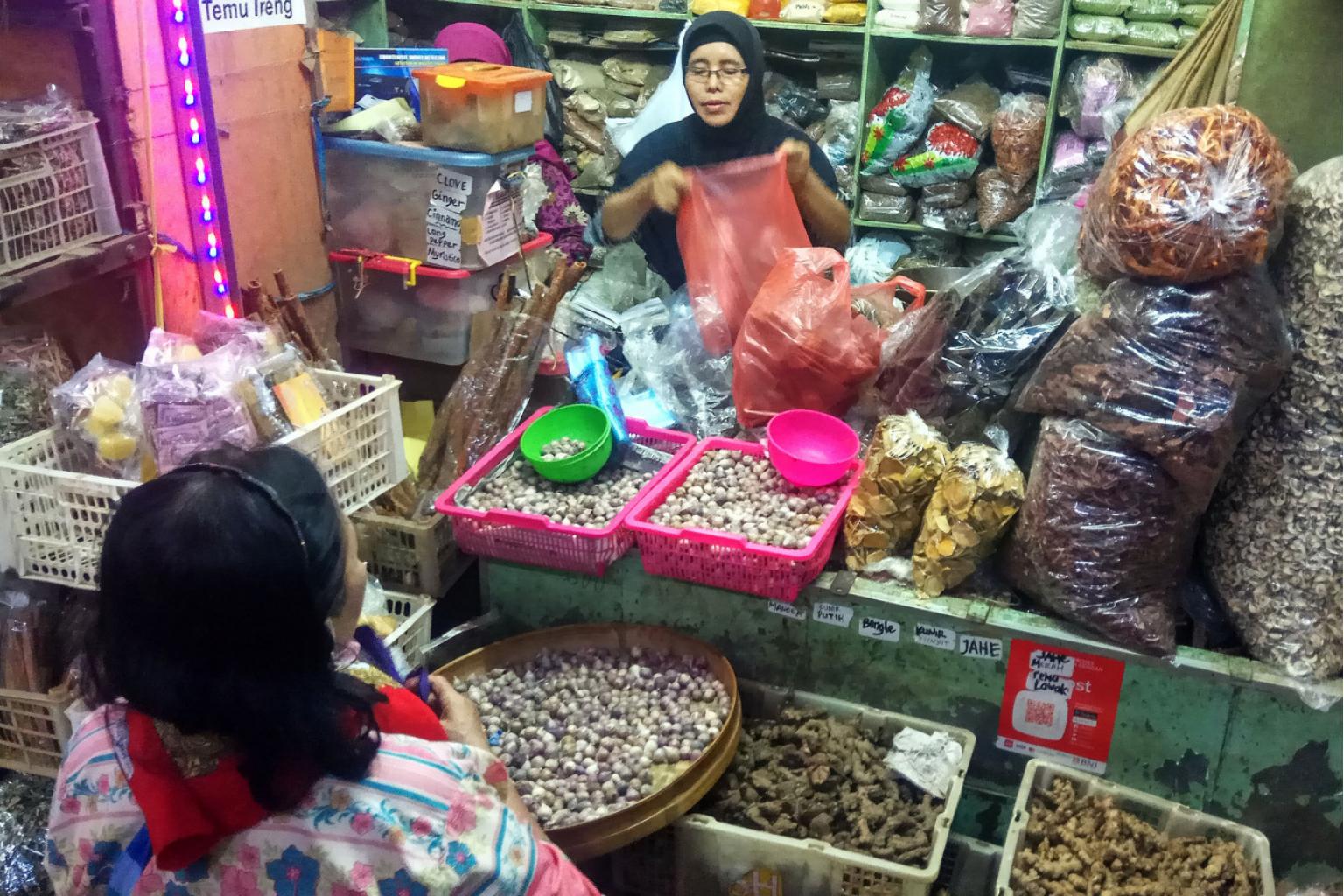Coronavirus: Indonesia's panic buying of herbs, medicinal plants takes toll on 'jamu' vendors
Sign up now: Get ST's newsletters delivered to your inbox

A herbal medicine trader serves a customer at Beringharjo Market in Yogjakarta, Indonesia, on March 2., 2020.
PHOTO: THE JAKARTA POST/ASIA NEWS NETWORK
Follow topic:
JAKARTA (THE JAKARTA POST/ASIA NEWS NETWORK) - As residents in the Indonesian capital of Jakarta flocked to convenience stores to stock up on medical supplies after the nation announced its first coronavirus case this week, those in other parts of the country reacted by hoarding herbs and medicinal plants believed to be effective in preventing viral infections.
The panic buying is taking a toll on vendors of traditional herbal medicine, known locally as "jamu". Vendors complain that the prices of the main ingredients for their drinks, such as red ginger, have soared.
Ms Sumini, a jamu vendor in Colomadu, Karanganyar regency, Central Java, bemoaned the recent price surge.
"The price of red ginger has been the most affected, rising from 30,000 rupiah (S$2.94) per kg to 50,000 rupiah per kg. The price for kencur (aromatic ginger) rose from 35,000 rupiah per kg to 42,000 rupiah per kg. And then temulawak (Javanese ginger), which was previously sold for 4,000 rupiah per kg, now sells for 12,000 rupiah per kg," Ms Sumini said on Tuesday (March 3), as quoted by local news portal kompas.com.
She said the plants were the main ingredients of empon-empon, a type of packaged spices used to make one of the herbal drinks she sells.
The drink has become highly popular following a recent study by Mr Chairul Anwar Nidom from Airlangga University in East Java that claimed that consuming the traditional beverage could increase one's immunity to diseases.
Mr Chairul said empon-empon contained curcumin, a substance commonly found in turmeric, and might, therefore, help prevent cytokine storm - the overproduction of immune cells and their activating compounds - in the lungs.
"Cytokine actually serves a positive purpose, but it has a negative side effect, which may inflict damage on its surrounding cells. Cytokine is what causes the body to warm up when an individual is infected with germs," he said.
The traditional beverage was discovered to have potent medicinal effects on alleviating the symptoms of bird flu. The university will conduct further research to determine whether the beverage has similar effects on the novel coronavirus.
Indonesia has reported two cases of coronavirus. The discovery of the first cases this week came only after medical experts raised concerns about lack of vigilance and a risk of undetected cases in the country of more than 260 million people.

